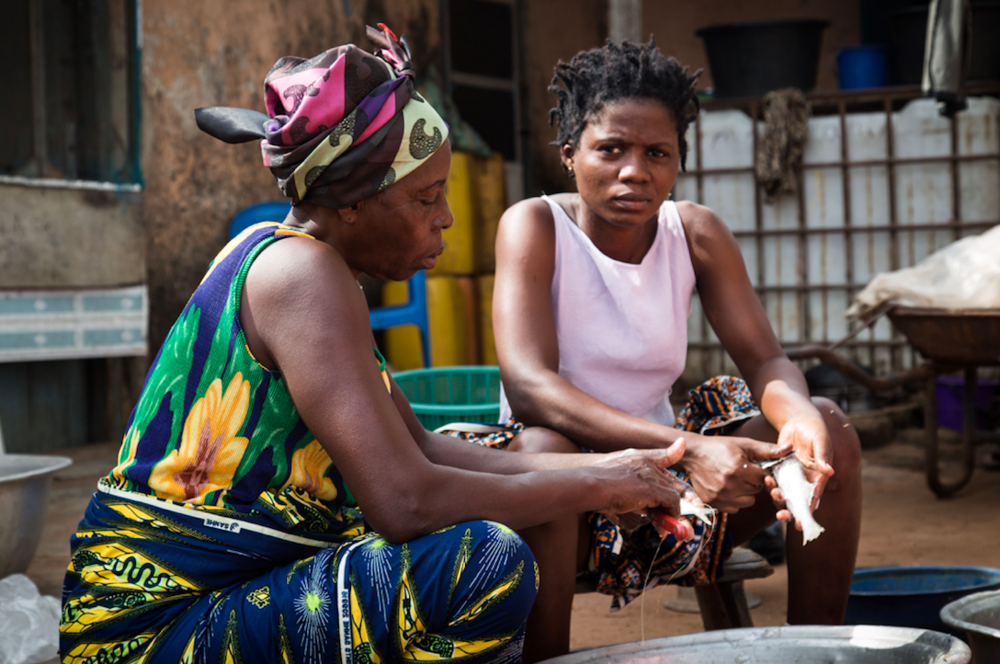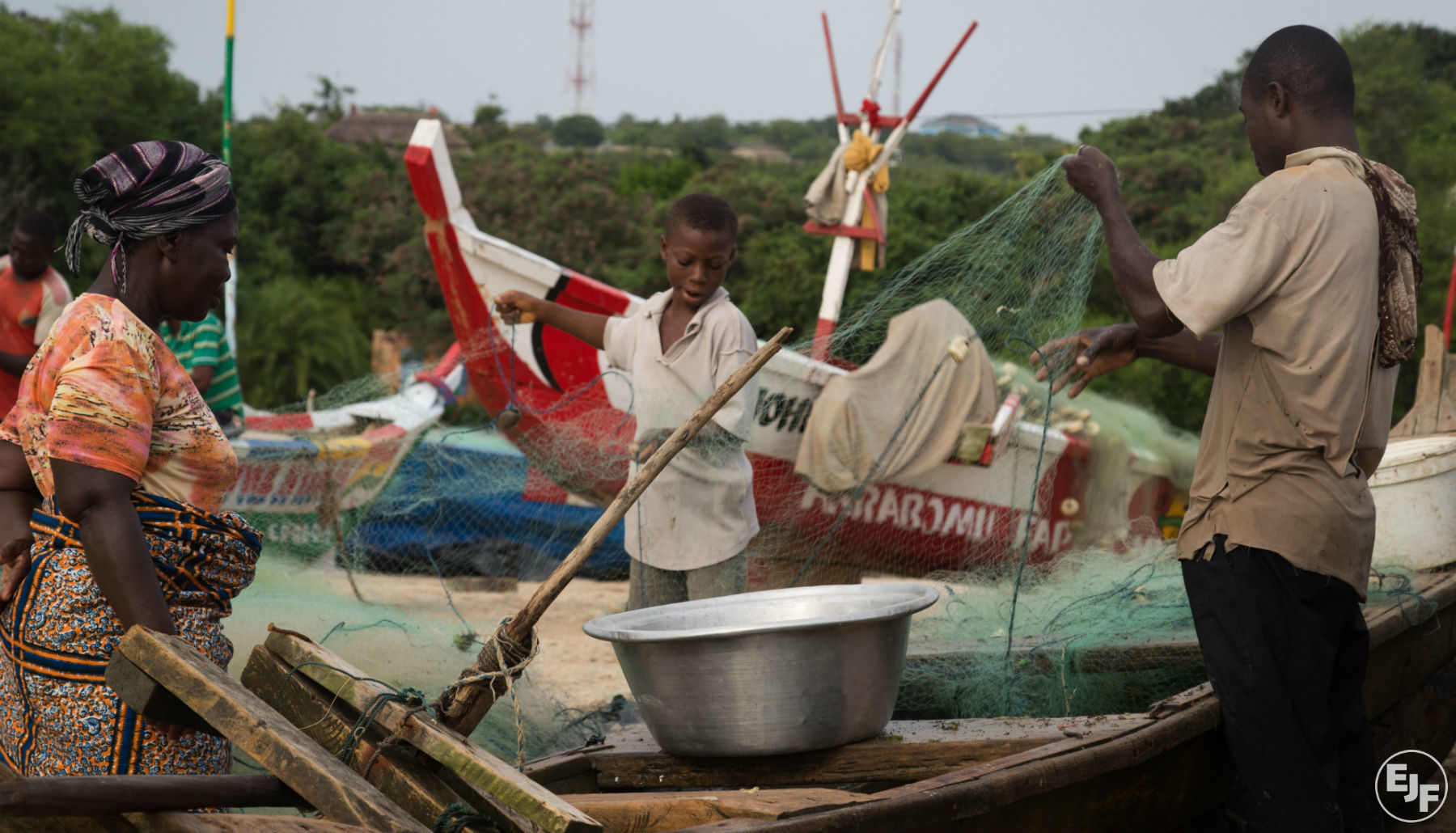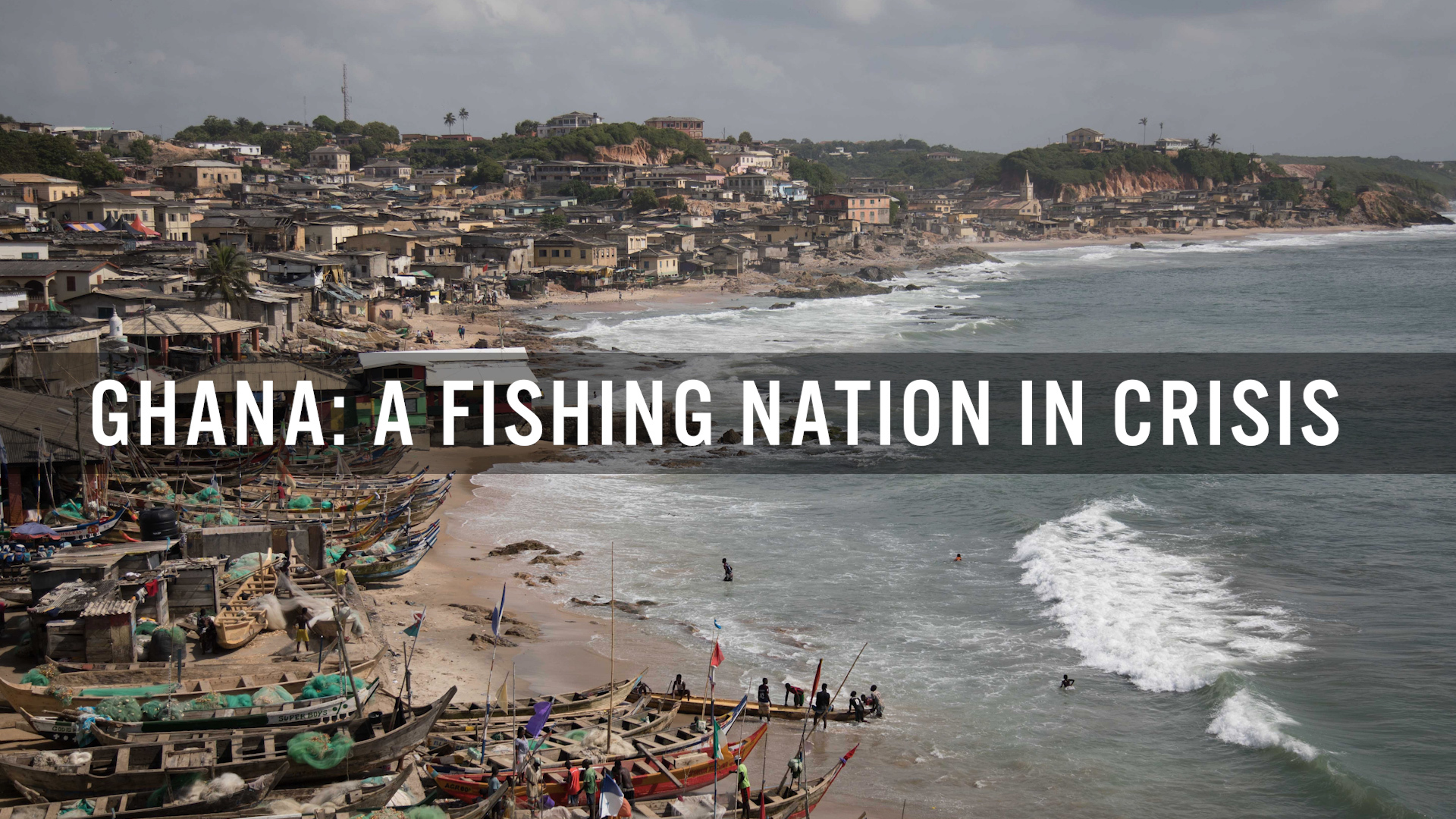
Ghana’s queen fishmongers: balancing gender for sustainable fisheries
Women are at the heart of Ghana’s fisheries, and to achieve true sustainability they must be included in decision making. This International Women’s Day, EJF and partner Hen Mpoano have published a report exploring the substantial work of women in Ghana’s fishing industry and how a gender #BalanceForBetter is essential to restoring our oceans.
When we think about fishing, we typically conjure a very distinct image: boats at sea, manned. But that is only half the story, as the new report shows by highlighting the powerful roles of women in Ghana’s fisheries. Women finance fishing trips by paying for fuel and canoes in the country’s Central Region; while in Greater Accra, women are out on the river with the men, catching clams.
The Konkohemaa – queen fishmonger – presides at the landing beaches, speaking on behalf of the other women when she haggles over the price of mackerel, or mediates issues with fishermen. By funding fishing trips, women have traditionally secured themselves a portion of the catch. But now, with fish stocks at crisis point, business is bad, the old community relations are fraying, and fish instead go to the highest bidder.
And despite the key role that women play, and despite the fact that they stand to lose just as much from the crashing fish stocks, women have little control or even input over fishing practices.
Collective action is required to improve the state of Ghana’s fisheries, and ensure women’s voices are heard in discussions about the future. Fully including women in fisherfolk organisations, community meetings, and technical plans is not only fair, but sound judgment, given the scale of the problem facing Ghana’s fisheries. Communities need to move away from destructive practices – and unify against illegal industrial tactics, such as saiko. This kind of behavioural shift requires the widest range of experience and perspectives.
Recognising that gender equality and environmental regeneration are intimately linked, the Far Dwuma Nkɔdo Project – initiated by EJF and Hen Mpoano in 2017 – has been working with local fishing communities to give marginalised women’s groups a greater say. One such group is the National Fish Processors and Traders Association (NAFPTA), which was formed under the West Africa Regional Fisheries Programme in 2015. This was an important first step in bringing women together to demand better representation.
Far Dwuma Nkɔdo’s report calls for the strengthening of NAFPTA at both national and community level. Increased use of Village Savings and Loans Associations could create a buffer for the low season and provide emergency relief – for school fees and sickness costs, for example. Along the beaches, women should be encouraged to become actively involved in the fight against illegal fishing. And crucially, fishing regulations must be closely observed to restore the powers of the Konkohemaas.
As Rose, a fishmonger from the town of Gomoa Fetteh, says, “You need to identify your talent in this world.” And for her, being a fishmonger is it. There should be no barriers to a woman choosing her path, and nothing to stop Ghana’s fisheries benefiting from the voices of the women who know it best.
- Read our in-depth report about the vital role of women in Ghana’s fisheries.
- Find out more about how illegal fishing practices such as saiko are driving Ghana’s fisheries to the edge of collapse, causing untold human and ecological damage. Watch Ghana: A Fishing Nation in Crisis.
SIGN UP FOR OUR EMAILS AND STAY UP TO DATE WITH EJF

